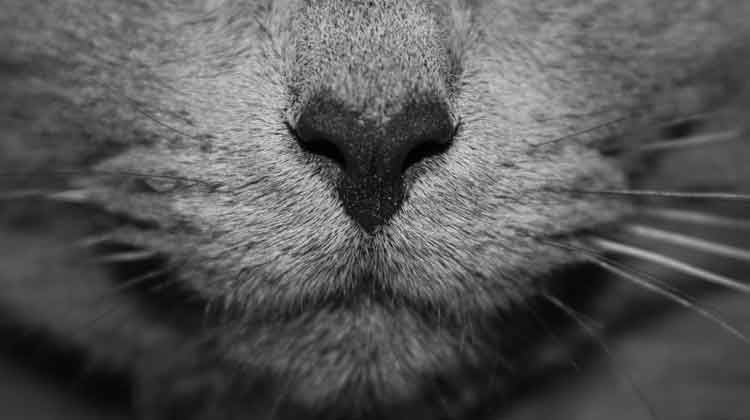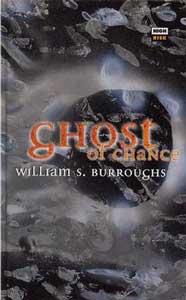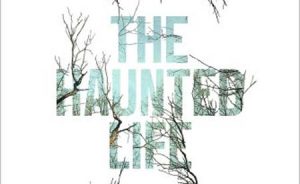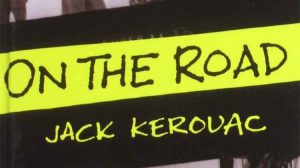
“O fiery river
“Spread over this American land.
“Drown out the falsity, the smug contempt
“For what does not pay …
“What would you pay Christ to die again?”
— Kenneth Patchen, from “O Fiery River”
William Burroughs has to look after his cats. “I simply could not stand to see my little cats hungry.” But there’s more to this than simple natural compassion. He sees something in cats more than cat. “I am cast in the role of the Guardian, to create and nurture a creature that is part cat, part human, and part something as yet unimaginable …”
To understand what makes cats so important to Burroughs, you can compare what he has to say about dogs. Dogs are hard-working animals that live to serve humans “as hunters and guards.” If they could talk, they might complain about cats:
“‘Look at the services we provide and all cats do is loll around and purr. Ratters, are they? Take a cat half an hour to kill a mouse. All cats do is purr and alienate the Master’s affections from my honest shit-eating face. Worst thing is they got no sense of right and wrong.’”
Burroughs insists he doesn’t hate dogs. But they are do-gooders, willing to take shit in return for comfort and affection, and so they are the opposite of Burroughs’s own ideal of independence, or “enlightened interdependence.” Many people in the world today are like dogs: honest hard-workers who just want to be loved and sometimes resent those people – more like cats – who have escaped the treadmill of honest toil.
Burroughs is not alone in thinking dogs a metaphor for the lowest of the low. In “The Dimensions of the Morning,” Kenneth Patchen wrote:
“A dog will throw up
“When he is sick;
“Are you lower than dogs
“That you keep it all down–
“And cram more in?”
The poorest thing you can be: not a dog, but a person lower even than a dog, who can and really does take any shit on offer without throwing up. Burroughs and Patchen are espousing the opposite moral to “blessed are the meek,” and it sounds uncomfortably close to blaming the victim: the meekness of the exploited and oppressed is killing the world by allowing the exploiters and oppressors to go on destroying. You could be more like a cat, and turn up your nose every once in a while.
Burroughs and Patchen aren’t writing just about cats and dogs, but about people. Cat-like and dog-like people. “I am not a dog hater, I do hate what man has made of his best friend.” What dog-like people have done to their dogs, and to themselves too.
There are different kinds of cats, and different kinds of human beings. He writes of cats: “Practical animals, they prefer to have others provide the food … some of them do. There must have been a split between the cats who accepted domestication and those who did not.” The Cat Inside and the Cat Outside. And there are more or less domesticated varieties of human beings too.

A domesticated human isn’t much like a domesticated cat, for the most part. They don’t always like to make a show of their vulnerability. A human being might not ask you for food: they’ll offer a service. Dog-like, proud of their servitude and loyalty. And if they fail, they expect punishment:
“Dogs are the only animal other than Man with a knowledge of right and wrong. So Fluffy knows what to expect when he is dragged whimpering from under the bed where he cowers. He realises the full extent of his trespass. No other animal would make the connection. Dogs are the only self-righteous animal.”
Dogs and a certain kind of human being.
And service, law and punishment becomes the norm, and other modes of existence – perhaps gentler, freer – are pushed out and cease to exist. “There will be fewer and fewer exotic, beautiful animals.” Fewer strange and interesting creatures, because it is a struggle to come into existence in a world that believes that a right to existence is only earned through service.
Burroughs tells a story from his time at Los Alamos Ranch School. The boys are listening to stories around a campfire, when
“Suddenly a badger erupts among the boys – don’t know why he did it, just playful, friendly and inexperienced like the Aztec Indians who brought fruit down to the Spanish and got their hands cut off. So the counsellor rushes for his saddlebag and gets out his 1911 Colt .45 auto and starts blasting at the badger, missing it with every shot at six feet. Finally he puts his gun three inches from the badger’s side and shoots. This time the badger rolls down the slope into the stream. I can see the stricken animal, the sad shrinking face, rolling down the slope, bleeding, dying.”
The counsellor did this to protect the boys, he says. But Burroughs advises his reader: “Contact that. Identify with that. Feel that. And ask yourself, whose life is worth more? The badger, or this evil piece of white shit?”
Beneath the counsellor’s rationalisation for his action is something deeper, something evil. “Kill them! They might hurt somebody.” An irrational imperative, a rationalisation, a contradiction. And so look deeper for the source. Hate, pure and simple.
Fearful, do-gooding, murderous … The dominant human type. And how can any other type survive in these conditions?
Burroughs’s recurring dream develops, and comes to have a clearer and deeper meaning: “… Now the creature [in the dream] is clearly recognised as a cat spirit, a Familiar. Certainly it partakes of the cat, and other animals as well: flying foxes, bush babies, the gliding lemurs …”
Lemurs and cats represent something that Burroughs finds good in the world. It’s a mixture of independence and vulnerability in them.
“The word for ‘lemur’ meant ‘ghost’ in the native language. There were taboos against the killing of ghosts …” In Ghost of Chance, lemurs are sacred to the natives in the same way that cats are sacred to Burroughs. They do not serve humans. They do not serve anyone, and this is what makes them sacred and valuable.
“The cat does not offer services. The cat offers itself. Of course he wants care and shelter. You don’t buy love for nothing. Like all pure creatures, cats are practical.”
One of the cats Burroughs took into his home was called Ruski. “Since I adopted Ruski, the cat dreams are vivid and frequent.”
He means the dreams of having to protect the cat creature, now identified with Ruski, and the struggle to do so: “The Land of the Dead … I can’t find Ruski … I wake up with tears streaming down my face.”
Burroughs is afraid he will fail in his mission. That this dream is a premonition.
“It is the function of the Guardian to protect hybrids and mutants in the vulnerable stage of infancy.”

Cats are often vulnerable in the current environment. A cat is unique, like a mutant. An individual cat is more than just cat, or the type “cat.” A cat is most of all herself, a species of her own. In The Cat Inside and in Ghost of Chance, Burroughs imagines some of the many species that never had a chance to exist, let alone to become extinct: “… flying and gliding cats … a cat that is bright electric blue, giving off a faint smell of ozone …”
A cat, any cat, is unique and new as any of these special and strange cat-species would be.
In order for something new to come into being, circumstances have to be just right. And then if it does come into being, it had better adapt if it’s going to survive.
But this is only one side of the story. The environment is not decided just by God or chance, but by human beings too. We can choose to open up the world to the new and strange, or close it up, so that only what serves us can survive.
Cats would never have survived if they had provided only a service. We’re lucky that we saw something deeper, almost imperceptible, in them that led us to value them for what they are:
“Cats didn’t start as mousers. Weasels and snakes and dogs are more efficient as rodent-control agents. I postulate that cats started as psychic companions, as Familiars, and have never deviated from this function.”
Cats represent something more than cats because they are the most vivid example of the Familiar, the living creature revered for being exactly what it is. We live in an age where sometimes it seems that everything has to pay its way in order to have value, and the cat is the refutation of this ugly principle.
It is for this reason that the cat can come under threat in modern times. Homeless cats, cats in shelters, cats in abusive homes … And what of the dogs abandoned, who long only for a master to serve? As human beings and animal lovers, we need to make sure the conditions are right not only for the vulnerable creatures alive today, but also for the infinity of new species that might be struggling to come into existence in this very moment: be they human, cat, dog, or any other animal.
Sources
William S. Burroughs. “Advice for Young People.” YouTube.
William S. Burroughs. The Cat Inside. New York: Penguin, 2009.
William S. Burroughs, Ghost of Chance. New York: High Risk, 1991.
Kenneth Patchen. Selected Poems. New York: New Directions, 1957.





Sam Silva says
Nice piece!